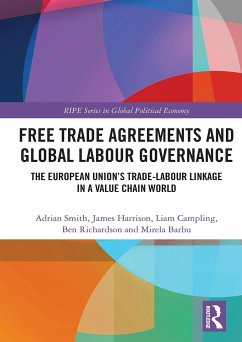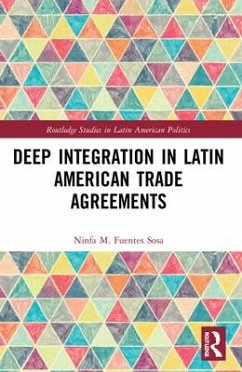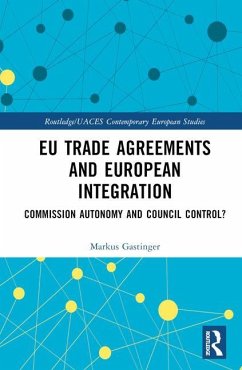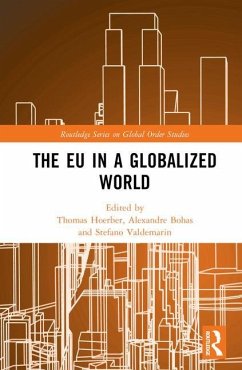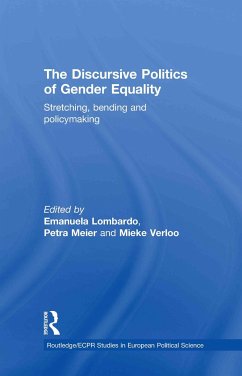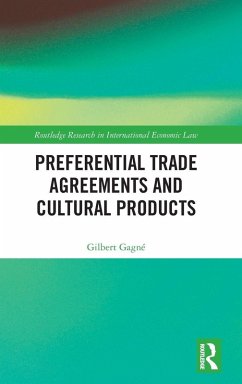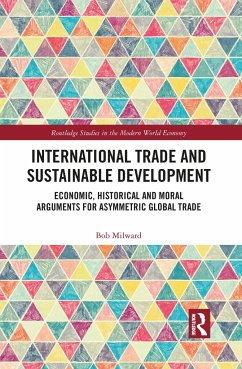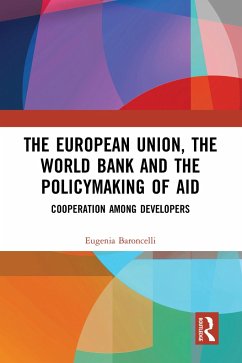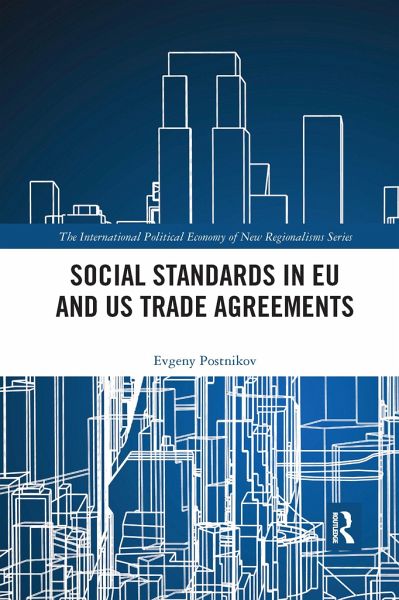
Social Standards in EU and US Trade Agreements
Versandkostenfrei!
Versandfertig in 6-10 Tagen
45,99 €
inkl. MwSt.
Weitere Ausgaben:

PAYBACK Punkte
23 °P sammeln!
This book examines the causes and consequences of social standards in US and EU preferential trade agreements (PTAs).PTAs are the new reality of the global trading system. Pursued by both developed and developing countries, they increasingly incorporate labor and environmental issues to prevent a race to the bottom in social regulation and counter-protectionism. Using principal-agent theory to explore why US PTAs have stricter social standards than those signed by the EU, Postnikov argues that the level of institutional insulation of trade policy executives from interest groups and legislators...
This book examines the causes and consequences of social standards in US and EU preferential trade agreements (PTAs).
PTAs are the new reality of the global trading system. Pursued by both developed and developing countries, they increasingly incorporate labor and environmental issues to prevent a race to the bottom in social regulation and counter-protectionism. Using principal-agent theory to explore why US PTAs have stricter social standards than those signed by the EU, Postnikov argues that the level of institutional insulation of trade policy executives from interest groups and legislators determines the design of social standards. In the EU, where institutional insulation is high, social standards mirror the normative preferences of the European Commission leading to a softer approach. In the US, where such insulation is low, social standards are driven by interest groups and legislators they control, resulting in a stricter approach. This book shows that both approaches can be effective but work through different causal mechanisms. To test his argument, Postnikov draws on original data collected in Brussels, Washington, Santiago, Bogota, and Seoul.
This book will be of interest to all scholars and students working in the fields of international political economy and EU and US trade policy.
PTAs are the new reality of the global trading system. Pursued by both developed and developing countries, they increasingly incorporate labor and environmental issues to prevent a race to the bottom in social regulation and counter-protectionism. Using principal-agent theory to explore why US PTAs have stricter social standards than those signed by the EU, Postnikov argues that the level of institutional insulation of trade policy executives from interest groups and legislators determines the design of social standards. In the EU, where institutional insulation is high, social standards mirror the normative preferences of the European Commission leading to a softer approach. In the US, where such insulation is low, social standards are driven by interest groups and legislators they control, resulting in a stricter approach. This book shows that both approaches can be effective but work through different causal mechanisms. To test his argument, Postnikov draws on original data collected in Brussels, Washington, Santiago, Bogota, and Seoul.
This book will be of interest to all scholars and students working in the fields of international political economy and EU and US trade policy.





